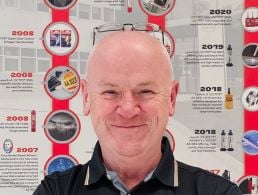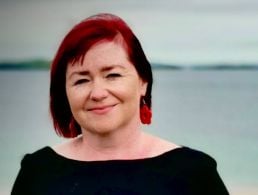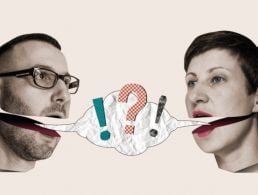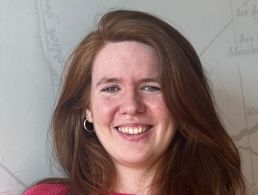Jennifer Opal has faced many bumps in the road to becoming a DevOps engineer. But positivity, determination and an openness to mentors have helped, she explains.
Jennifer Opal, a DevOps engineer at BT in the UK, originally planned to pursue a career in psychodynamic therapy. But when she was introduced to front-end web development at college, she realised coding was her true calling.
Here, she talks about finding her career path, overcoming challenges and the importance of inclusion in STEM.
‘Despite my challenges, past and present, I haven’t let that stop me from being the best engineer I can be’
– JENNIFER OPAL
What drew you to DevOps?
As corny as this might sound, tech found me. At the time, I was in my second year of university when Code First: Girls came to my university and offered a free course called Introduction to Front-End Web Development.
It was the beginning of a journey I never would have imagined for myself, to be honest. I was pursuing a career to become a psychodynamic therapist, working with young offenders and children of disadvantaged backgrounds, but I wasn’t fulfilled. Coding allowed me to be creative and that was exciting for me.
What aspects of your job have you struggled to get to grips with?
When I first started, I struggled with using Scala. I had prior knowledge of Python, but starting a new role while learning a new language and applying it gave me a bit of worry. I wanted to deliver and contribute to the team. But after a few months, I have become a lot more confident in using Scala.
To add to this, I have ADHD and dyslexia, so that added a little bit of nervousness. But I just had to make it work for me rather than against me and so far, so good!
What has been the hardest thing you’ve had to face in your career, and how did you overcome it?
I would say the most challenging thing I’ve had to face was being the only black woman where I worked. It was a huge adjustment for me. Although I wouldn’t say I’ve fully adjusted, I would say that I have accepted it. But it did push me to be vocal about it and express my disappointment in that, too.
I moved to Belfast from London to take the opportunity to kick off my career in tech and I have no regrets in that, but the loneliness that came from ‘being the only one’ was really hard for me. Despite that, I’ve formed some great friendships with other people and mentors who have been supportive and uplifting during my journey, so that helps me a lot.
If you had the power to change anything within the STEM sector, what would that be?
Inclusion! I feel that in STEM, the focus on diversity is high and it should be. However, I don’t believe that inclusion is focused on that much within quite a few companies and, in some cases, they are used interchangeably. I see a focus on having people within the workplace that are a part of the underrepresented, but when it comes to making them feel included and recognised for who they are, they do lack.
Invest in celebrating them, acknowledging landmark events in their cultures like Black History Month or Eid. Educate existing colleagues about them. You can’t expect everything to be done among the juniors who come into the organisation, you have to be talking about it loudly from the top, too.
Finally, listen to them, apply what you have learned from them. There’s no point asking for feedback if you won’t apply the insight you’ve gained about their experience. Why send out invitations for people to come to a party if you won’t ask them to dance?
Which of your personality traits makes you best suited to your job and this sector?
I would say my positivity. I look at some of my tasks and sometimes I’m challenged to do something I have never done before. But I always take accountability and responsibility in acknowledging that what I don’t know now, I will know later.
I would say I am a patient person but it’s pretty hard with ADHD and dyslexia. I get overwhelmed when I can’t read something properly and my mind is always hungry to learn something new and exciting.
I believe that this leads to my courage. Despite my challenges, past and present, I haven’t let that stop me from being the best engineer I can be.
Is there something in your personal life that helps you or has helped you in your job?
I’ve experienced a lot of challenges in my past that have pushed me to keep learning and keep going.
I’ve been homeless, I’ve been bullied, I’ve dropped out of university twice and I have ADHD and dyslexia.
This is just a sample, but all of these experiences have moulded me into who I am today. I go into work telling myself to keep learning, keep growing and keep building. I believe that determination to be better for myself is what makes me good at what I do.
How do you make connections with others in the STEM community?
With the current climate, social media has been my go-to. Twitter has the most amazing tech community that you can connect with. There is no question too silly and every question always brings and creates conversation, and I love that everyone is willing to lend their experiences and knowledge to you.
I’ve developed great relationships and friendships with people in the DevOps space and people in other areas of tech such as UX, robotics, spatial computing and so much more. I love connecting with the community and with those wanting to get into the STEM space. I always share what I have learned in my tech journey and uplift those that are currently on theirs.
It's here, everyone! 🙌🏾 100 of the Best Engineers, Developers, Coders and Tech Entrepreneurs of Colour To Follow On Social Media voted for by YOU! ❤️
There were 100s of nominations but we are all making a difference. 🙌🏾#BlackTechTwitter #LearnToCode
https://t.co/oJTTWHwdDb— jennifer opal (@_jenniferopal) May 3, 2020
Has mentorship or coaching been important in your career?
It has definitely been important for me. It’s been 14 months since starting my first tech role and both of my mentors have pushed me to evaluate where I want to be in my future as well believe in what I have to offer. They have pushed me to look at myself and see how much I have learned and how much I have grown within myself and within my skillset.
Both of them saw in me what I now see in myself. My potential, my intelligence and my capability. For some people, you need to have someone to speak that over you, especially when you are underrepresented in the tech industry.
What advice would you give to someone thinking about a career in DevOps?
I would say if you want to get into DevOps, research and understand what the job involves and build a project using the foundational tools of DevOps, being Python, AWS Cloud and Linux.
Some ideas that I was given by the tech community included creating a Spark Pipeline with interesting data, cleaning it and storing it in a database to run queries on it, which is great practice with using big data. You can download datasets from Kaggle or Google Dataset Search. Write a technical blog about what you have learned. You learn a lot by teaching others.
You could also look at getting familiar with AWS by checking out their projects page with project ideas on DevOps or big data. Lastly, don’t be afraid to invest in yourself, look at getting certified in AWS at least at the foundational level, and take the plunge and apply for junior roles once you have your portfolio.
You’ll notice I didn’t mention university. I, myself, do not have a degree. But if it is something you would like to do, do your research into the modules they offer and make sure it suits what you are aiming to get into. But continue to invest in self-learning along with your degree of choice.




